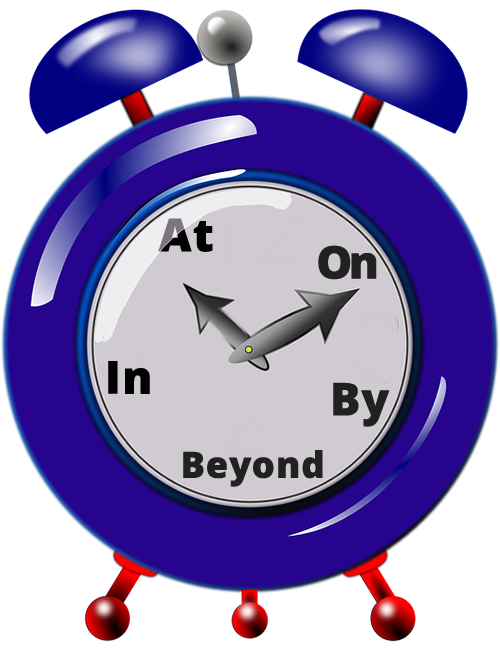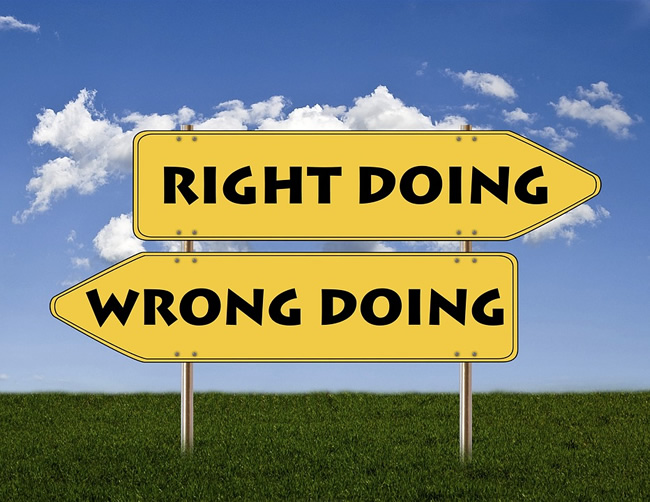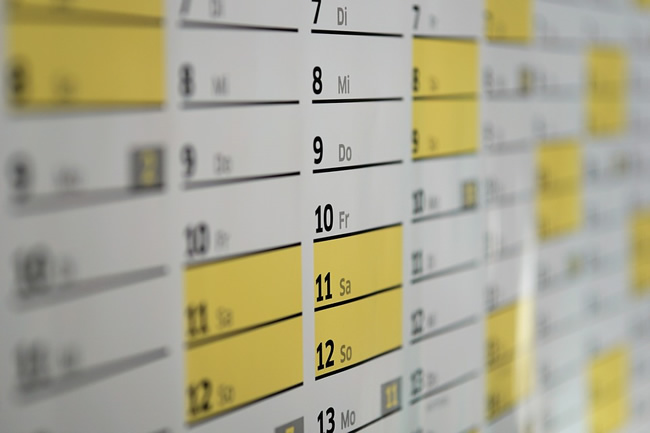In this section, you are going to practice prepositions of time, which are used to talk about o discuss a specific time period such as a date on the calendar, one of the days of the week, or the actual time something takes place. You are going to read information explaining prepositions of time: on, at, in, beyond, and by.

Open ClipArt_vectors, 2013, reloj [illustration].Retrived on 16 de Agosto de 2017
from:
https://pixabay.com/en/alarm-clock-mechanical-time-161067/
It's essential that you read each activity and information carefully so that you can learn more about the form and the function of prepositions of time. You will also practice different skills, such as listening, reading, writing and speaking. It’s advisable to do all the activities in the given order because they will help you learn in a better way.
By the end of the material, you will find a final evaluation. Answer it carefully, and it will help you know whether you need to review the topic or not. Also, the evaluation will help you check your progress.
By the end of this topic you will:
be able to use the prepositions of time: on, at, in, by and beyond, to talk about a dimension of time for specific dates and activities of everyday life.

Introduction
Prepositions of time are an essential part of sentences. They talk about a dimension of time for specific dates and activities of everyday life.
They are so important that you cannot understand a sentence without a preposition of time; that is because they signal the time of an action.
For example, She will be there at six o'clock. We would never understand the concept of time without preposition at. That is the idea is not complete if you do not know when it is happening. Prepositions of time also show when the actions take place. The significant time prepositions are: at, in, on, by and beyond. It is essential that you learn the correct use of by, beyond, on, at and in so to express your ideas more clearly and accurately.
Here are the rules to use prepositions of time.
Activity 1

Jarmoluk, febrero 2014, Pictures [photo] Retrived on: 16 de Agosto de 2017
from:
https://pixabay.com/en/photo-photographer-old-photos-256882 /
Do you know how to talk about time situations?
Sometimes we talk about time situations, so we need to know how to use prepositions of time.
In this activity, you will read some situations, which you have to complete in a proper form using prepositions of time.
Answer the following exercise by completing the ideas using the correct preposition of time.
When you finish click on check to see the correct answer. Then, click on next to continue.
Activity 2

Johnhain, 2016, signs [illustration] Retrived on 16 de Agosto de 2017
from:
https://pixabay.com/en/signs-right-wrong-good-bad-1172209 /
right or wrong_retrived on 19/04/2017 from https://pixabay.com/en/signs-right-wrong-good-bad-1172209/
In this activity, you will read some situations of everyday life. Mark if they are correct or not. You must complete the activity by selecting the best preposition of time: (c) for correct or (w) for wrong. Focussing your attention on the prepositions in parenthesis is essential. Answer the following exercise by completing the ideas using the correct preposition of time.
When you finish click on check to see the correct answer. Then, click on next to continue.
Activity 3

calendario
Webandi,Eenero 2017, calendar, [illustration]. Retrived on 16 de Agosto de 2017
from https://pixabay.com/en/calendar-wall-calendar-days-date-1990453 /
Now that you know how to use prepositions of time listen to them in context and write the best option you hear.
Complete the dialogue in the right way. As soon as you finish the exercise, you can see the correct answers. You have two opportunities to complete the activity.
Activity 4

StartupStockPhotos, Enero de 2015, writing, [photo] Retrived on 16 de Agosto de 2017
from:
https://pixabay.com/es/escribir-plan-de-negocio-inicio-593333/
In this exercise, you are going to write a biography using prepositions of time: on, at, in, beyond, and by. Describe yourself using as many prepositions as you can. Here you have ten different questions to consider. Use each one of them as an example or to integrate other ideas related to the topics you want to share.
By the end of the exercise, you will discover that it is easy to complete your self-biography.
1. When were you born?
I was born on July 1st, 1978. I was born on Saturday at midnight.
What time does your family usually go to work?
My father goes to work at around 6 a.m. My mother has a better job. She works at home. She starts work at 2 or 3 in the afternoon, and after that she is free. My sister has different schedules at work. On Monday she starts work at 1 p.m. On Tuesday she doesn’t work. Then on Wednesday, she goes to work at 9 a.m., and on Thursday she begins at 4 and finishes at 7. On Friday she works in her office, and her schedule changes depending on the number of patients she has.
1. When were you born?
2. What time does your family usually go to work?
3. What time do you start and finish school?
4. When do you usually go out and where do you usually go to?
5. What time do you watch your favourite TV show and why do you like it?
6. When is your best friend’s birthday and how do you celebrate it?
7. When do you have holidays and what do you do on these days?
8. In what year were your parents born?
9. What do you do as a hobby and when do you do it?
10. What time do you usually have to be at home after a party?
You need to use at least 7 or 8 words in each answer, so by the end of the exercise you’ll have a text with 70 or 75 words
Before you do it, read this rubric so that you know the aspects you need to pay special attention.
If you need to look up any word in a dictionary, visit Cambridge Dictionary. You can see the definition in case you need it.
You will evaluate yourself. Once you finish your writing, open the rubric and click on the columns that better describe your writing, You’ll see the columns in a different color when you choose them. When you finish, you will be given a score and your feedback.
Activity 5

Geralt, 2017, communicationII, [illustration] Retrived on 16 de Agosto de 2017
from: https://pixabay.com/es/comunicaci%C3%B3n-la-cabeza-globos-1991848/
In this activity, you will practice your speaking using the prepositions of time: on, at, in, beyond, and by.
It is time for you to describe facts from your life. Use the answers you gave in the previous exercise (Activity 4. Describing the most interesting person: yourself) and record yourself reading those answers.
1. When were you born?
2. What time does your family usually go to work?
3. What time do you start and finish school?
4. When do you usually go out and where do you usually go to?
5. What time do you watch your favourite TV show and why do you like it?
6. When is your best friend’s birthday and how do you celebrate it?
7. When do you have holidays and what do you do on these days?
8. In what year were your parents born?
9. What do you do as a hobby and when do you do it?
10. What time do you usually have to be at home after a party?
Listen to the example of this exercise and use it as a guide for your recording. Your recording should last from 1 to 2 minutes. When you finish, use the following rubrics to evaluate your progress.
If you need to look up any word in a dictionary, visit Cambridge Dictionary. In case you need it, you can see the definition and the pronunciation of any word.